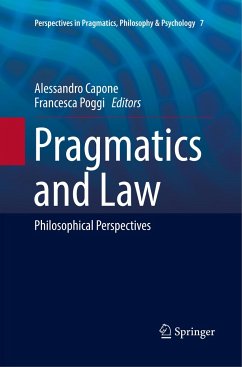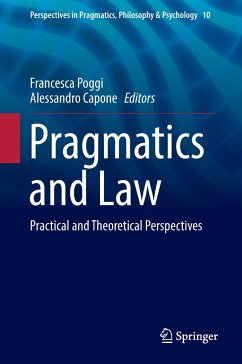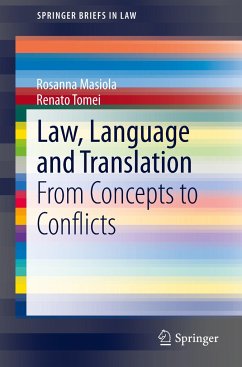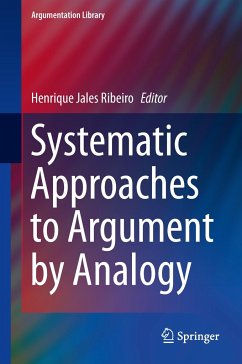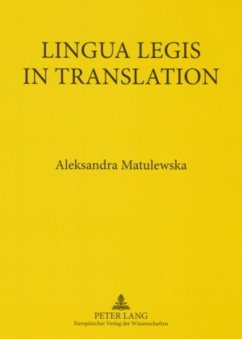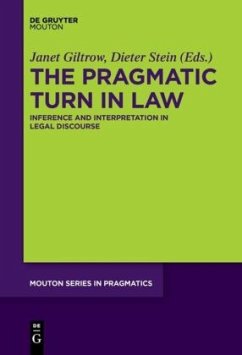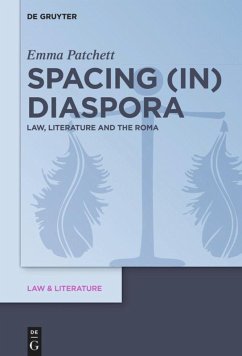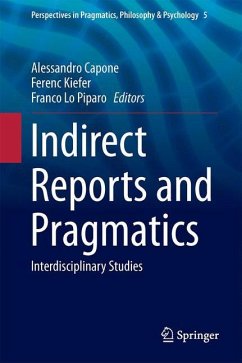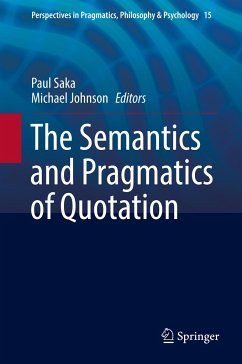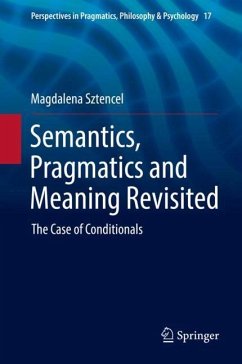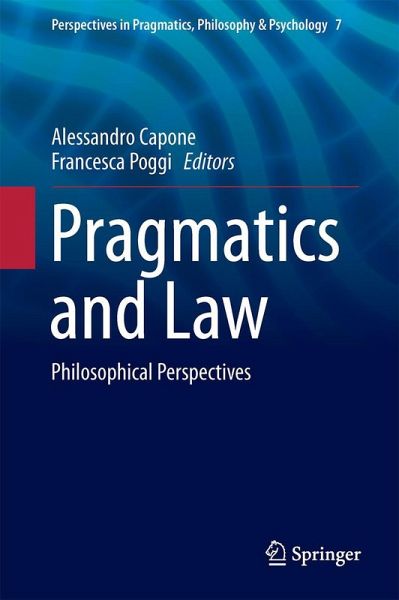
Pragmatics and Law
Philosophical Perspectives
Herausgegeben: Capone, Alessandro; Poggi, Francesca

PAYBACK Punkte
46 °P sammeln!
This volume highlights important aspects of the complex relationship between common language and legal practice. It hosts an interdisciplinary discussion between cognitive science, philosophy of language and philosophy of law, in which an international group of authors aims to promote, enrich and refine this new debate. Philosophers of law have always shown a keen interest in cognitive science and philosophy of language in order to find tools to solve their problems: recently this interest was reciprocated and scholars from cognitive science and philosophy of language now look to the law as a ...
This volume highlights important aspects of the complex relationship between common language and legal practice. It hosts an interdisciplinary discussion between cognitive science, philosophy of language and philosophy of law, in which an international group of authors aims to promote, enrich and refine this new debate.
Philosophers of law have always shown a keen interest in cognitive science and philosophy of language in order to find tools to solve their problems: recently this interest was reciprocated and scholars from cognitive science and philosophy of language now look to the law as a testing ground for their theses.
Using the most sophisticated tools available to pragmatics, sociolinguistics, cognitive sciences and legal theory, an interdisciplinary, international group of authors address questions like: Does legal interpretation differ from ordinary understanding? Is the common pragmatic apparatus appropriate to legal practice? What can pragmatics teach about theconcept of law and pervasive legal phenomena such as testimony or legal disagreements?
Philosophers of law have always shown a keen interest in cognitive science and philosophy of language in order to find tools to solve their problems: recently this interest was reciprocated and scholars from cognitive science and philosophy of language now look to the law as a testing ground for their theses.
Using the most sophisticated tools available to pragmatics, sociolinguistics, cognitive sciences and legal theory, an interdisciplinary, international group of authors address questions like: Does legal interpretation differ from ordinary understanding? Is the common pragmatic apparatus appropriate to legal practice? What can pragmatics teach about theconcept of law and pervasive legal phenomena such as testimony or legal disagreements?





